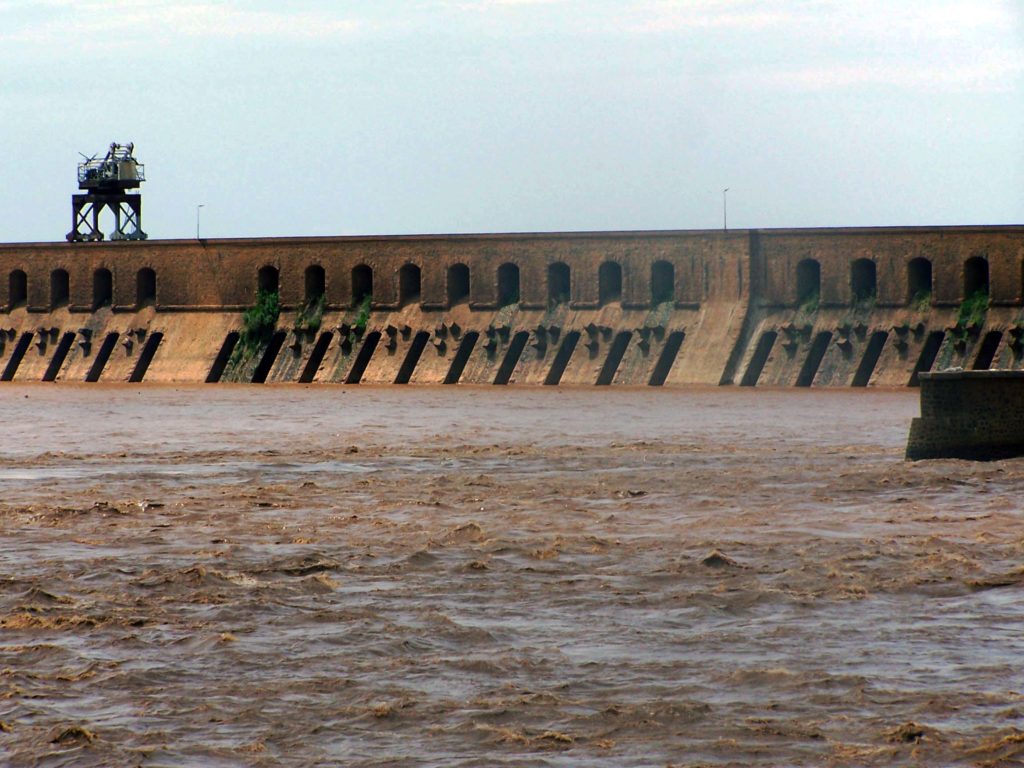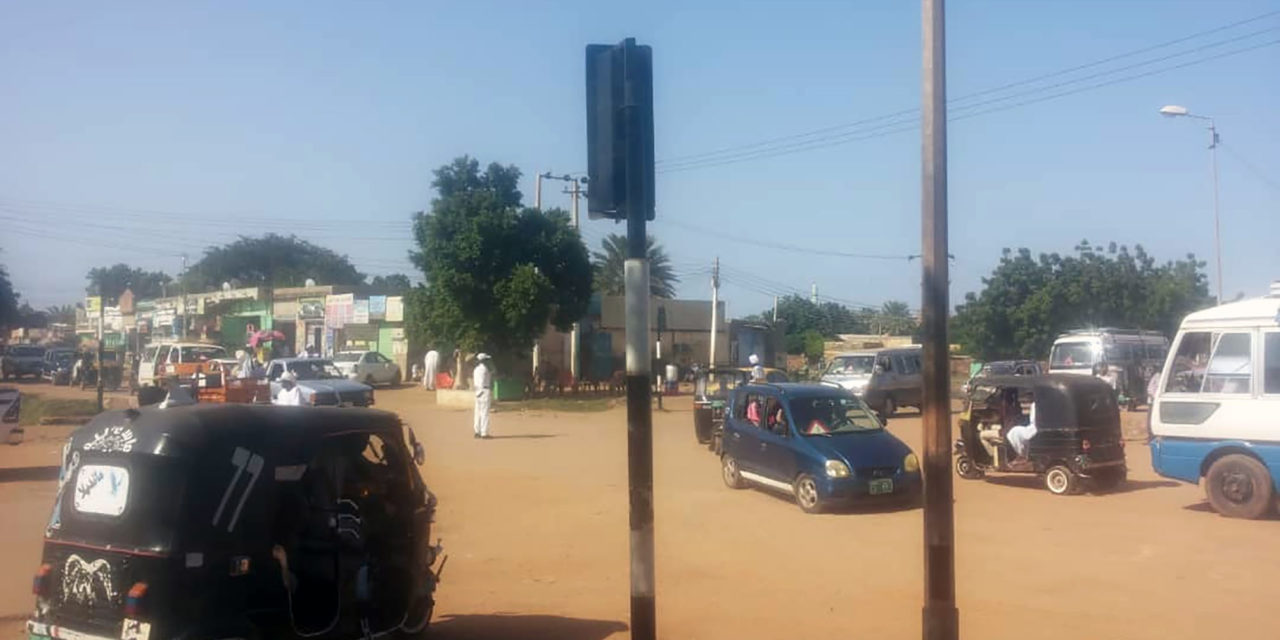A junction in the centre of Sennar.
(cc) AlAdwaa.online | Idreis Abdallah | September 26, 2019
Sennar is of historical importance to Sudan, but the town has long struggled with a government unable or unwilling to maintain and develop the infrastructure and life for its residents.
In his imagination, Abdel-Baset Khamis, a student accepted at the Sennar University, had drawn a bright picture of the city for its historic symbolism. The town, located 300 kilometres south of Khartoum, was the capital of the Funj Kingdom. Sennar was the first capital of the modern Sudan, after the fall of the Funj Kingdom in 1821, which ruled for over three centuries.
Sudan’s first dam on the Blue Nile River is also located near Sennar. It was completed in 1925, and it was named after the city. It was built to provide Khartoum with electricity and to irrigate the Gezira Project, one of the most significant agricultural projects in Sudan.
In 2018, several Sudanese news outlets reported on the discovery of gold in the State of Sennar. Besides, the state is favoured with unique ecosystems, such as the Dinder National Park, a famous tourist attraction in Sudan.

(cc) Mussapedia | March 10, 2013
But when Khamis arrived in the city, he was surprised to see a reality different from the one he had imagined. The streets of the town are not paved, and houses across the city are falling apart. “I was expecting it to be as beautiful as Athens or other cities. But upon my arrival, I found it not so much different from other Sudanese cities, even worse actually. It is like any remote village.”
He said that the historic city lacks the simplest pillars of life and suffers from water and electricity shortages. Public service infrastructure is also in bad shape. The Sennar Educational Hospital stands exemplary for the deterioration of infrastructure in the city and as a consequence for lacking public services for the city’s residents. “The most surprising thing for me was that the whole city boasts one traffic light only,” says Khamis.
A result of systematic marginalisation
Hanan Jamaleddin, a civil society activist, says that “the destruction of the city’s infrastructure was the result of a systematic marginalisation policy adopted by Sudan’s former President Omar al-Bashir, targeting areas where there are members of movements opposing his regime”.
“The destruction of Sennar’s infrastructure is the result of a systematic marginalisation policy.”
Hanan Jamaleddin
Jamaleddin added that Bashir’s regime believed that the development of any area would raise the level of awareness, which in turn would undermine the central government’s power. In the absence of public services and development, people struggled to make ends meet and therefore had little time to complain about government failures.
Hamed Ahmad Hamed, a member of the Forces for Freedom and Change (FFC) in the city, says that Ahmad Abbas, the former Sennar State Governor, used to respond to protest movements during his period in office by saying: “I will make this city into a village.”
Far-reaching consequences
The consequences of this negligence take many different forms and manifest on different levels. Sennar’s authorities, for example, face great difficulty dealing with recurrent Cholera outbreaks and natural disasters such as floods.
The city’s industry – mainly oil, textiles and agriculture – is also in shambles. For years, property such as land was confiscated from farmers and awarded to members of the Bashir regime and foreign investors, according to Khaled al-Yasaa, a leading member of the Communist Party.
Al-Yasaa says that all of Bashir’s governors were specialists in agricultural investments and they used their expertise to create projects for specific companies, which did not bring any benefits to the local population.
He added that “there were deliberate efforts to make the economic and social life in Sennar fail and this has happened along with political and administrative corruption, which had produced an expelling environment. There were serious efforts to control the city’s resources, and this led to many people leaving the city.”
What the city needs now
Al-Yasaa believes that it is crucial to make use of the city’s resources by allocating a significant percentage – not less than 50 per cent – of its revenues for its development. “Sennar is rich in resources, and it is an important transport hub in Sudan,” he says.
“Sennar is rich in resources, and it is an important transport hub in Sudan.”
Hamed Ahmad Hamed
“The city only needs institutions that work. There is a need to mobilise both the government and peoples’ efforts to attract revenues to develop the city and serve its people,” he adds.
Al-Yasaa also suggests initiating a clear development strategy focused on local investments through cooperatives and public companies with local shareholders. “Local investments open the door for sustainable participation in development, and they directly reflect on the lives of citizens,” al-Yasaa concludes.

